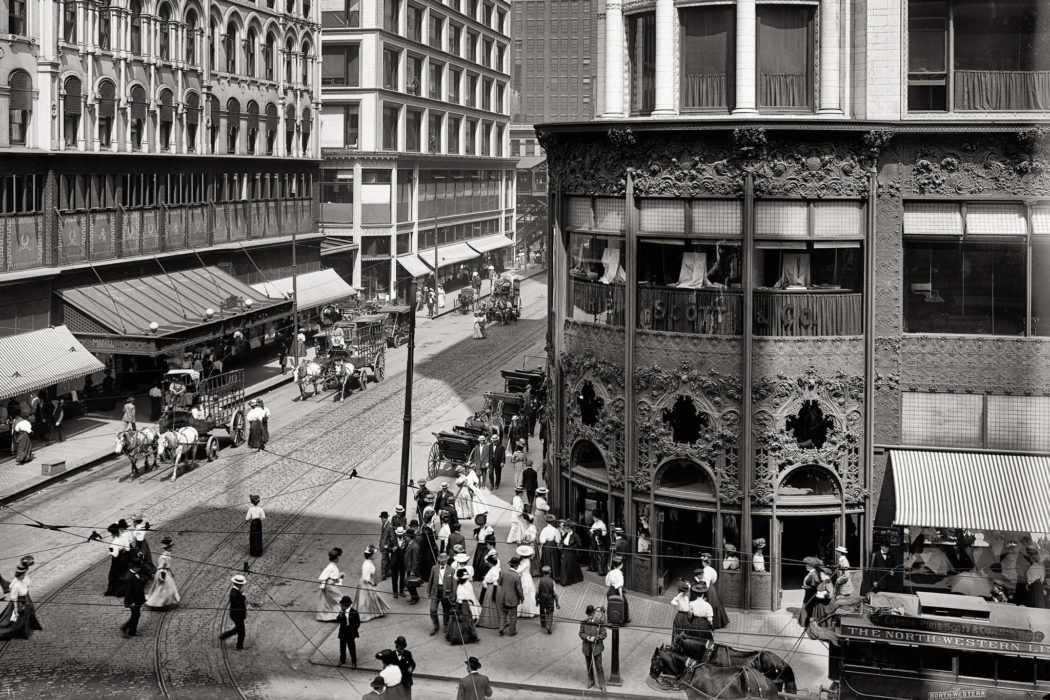“LOVE IS FICTION,” AN article published in the Chicago Tribune on January 28, 1912, stated. “There is no such thing,” it declared. “We talk of love, we read of love, we think of love. Yet we know there really is no love.”
Edward Burnett Tylor, often credited as being the founder of cultural anthropology, wrote the Tribune article. He based his argument on his extensive research into “primitive” societies, which he viewed as the kernels of modern polities. Marriage, he believed, originated as a dowry transaction to deal with surplus cows; he didn’t think much had changed.
Love, in its many forms, was something ‘Abdu’l-Bahá talked about throughout his time in America. While it is, perhaps, a word more likely to be found in an anniversary card than in mainstream social discourse, and an easy one to disregard, ‘Abdu’l-Bahá set out to redefine it.
‘Abdu’l-Bahá noted that love, at its most basic level, is a bond between human beings that begins in the family unit. “Marriage,” his father Bahá’u’lláh had written, is “a fortress for well-being.” The Reverend Howard Colby Ives, whose chronicle of his time with ‘Abdu’l-Bahá in America spends an entire chapter explaining the Bahá’í teachings on marriage, wrote “the development of the institution of marriage. . . from the promiscuity of the earliest history of mankind to the more or less monogamous ordinance now in vogue. . . have been in direct ratio to the ethical and spiritual development of the race.”

‘Abdu’l-Bahá told Americans that in the current age they had the capacity to extend the love that exists within families to ever wider circles of humanity. “A family is a nation in miniature,” he said. “Simply enlarge the circle of the household, and you have the nation. Enlarge the circle of nations, and you have all humanity.”
‘Abdu’l-Bahá often referred to the bond that must exist between all humanity as “brotherhood.” Yet he warned that if this brotherhood is simply based on material interest, it will amount to nothing. It must be based on a love such that people are willing to sacrifice their lives for one another. True love, ‘Abdu’l-Bahá argued, moves beyond words, and comes from conscious decisions. He called on people to exhibit a love that isn’t simply “the yielding of the hearts to the accidents of life.” In other words, love isn’t something that simply happens to you.
Ultimately, ‘Abdu’l-Bahá said, love originates from a source beyond the human realm. “The very cause of life is the Supreme One’s love,” he told journalists on Tuesday in Buffalo, “for by His grace we move, we see, we hear, we feel, and all phenomena is based on His love. . . .” ‘Abdu’l-Bahá’s primarily Christian audience would have understood much of his mystical discourse on love in the context of the creative “Word” described in the Gospel of John, where God calls His creation into being. This divine act of creation, ‘Abdu’l-Bahá said, is ultimately an act of love, and that all other forms of love flow from it. Human love must therefore be mediated by the love of God, he said, so “Each sees in the other the Beauty of God reflected in the soul.”
Edward Burnett Tylor argued of love that “Most of it is in the story books. The rest of it is in the divorce courts.” But ‘Abdu’l-Bahá believed that love had the power to transform the reality of human relationships. “Love is the light that guideth in darkness,” he said, “the living link that uniteth God with man, that assureth the progress of every illumined soul.”







